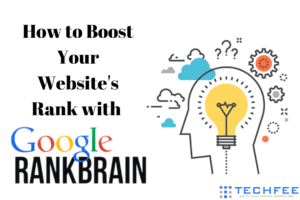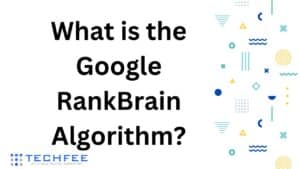Are you looking for the best AI tools to improve your business functions? Artificial intelligence is becoming increasingly popular across various industries, and choosing the right tool can significantly affect productivity.
Whether you own a small business, a medium, or a large corporation, using the best AI tools, you can automate tasks, gain insights, and make better decisions.
In this article, we’ll discuss some of the most efficient, effective, and great AI tools available in the market, ranging from natural language processing to predictive analytics.
We’ll explore how they can benefit your business and help you streamline your productivity.
Finally, we’ll delve into the insights and knowledge to help you determine which AI tools for business are worth investing in.
So, if you’re curious about how the best AI tools can take your business to the next level, keep reading. You may discover the perfect list of AI tools to revolutionize your work.
Table of Contents
ToggleWhat Is AI (Artificial Intelligence)?
Artificial intelligence, generally called AI, involves creating computer systems and processes that can perform tasks on behalf of a human being without real-time human intelligence.
This includes recognizing speech, perceiving visuals, translating languages, and making decisions. AI is a rapidly growing field of technology that covers various areas, such as robotics, natural language processing, and machine learning.
The main objective of AI is to develop intelligent machines that can learn and adapt to new situations. This will ultimately lead to the creation of machines that can perform complex tasks without the need for human intervention.
Although AI can potentially revolutionize many industries, some ethical concerns exist about creating machines that can think and act like humans.
Despite these concerns, AI is an exciting and ever-evolving field with the potential to shape the future of both technology and society. As technology advances, AI will undoubtedly play a significant role in our lives, changing how we work and interact with machines.
If you are a marketer, blogger or freelancer, Artificial Intelligence in digital marketing becoming popular and play huge role in 2024 and beyond.
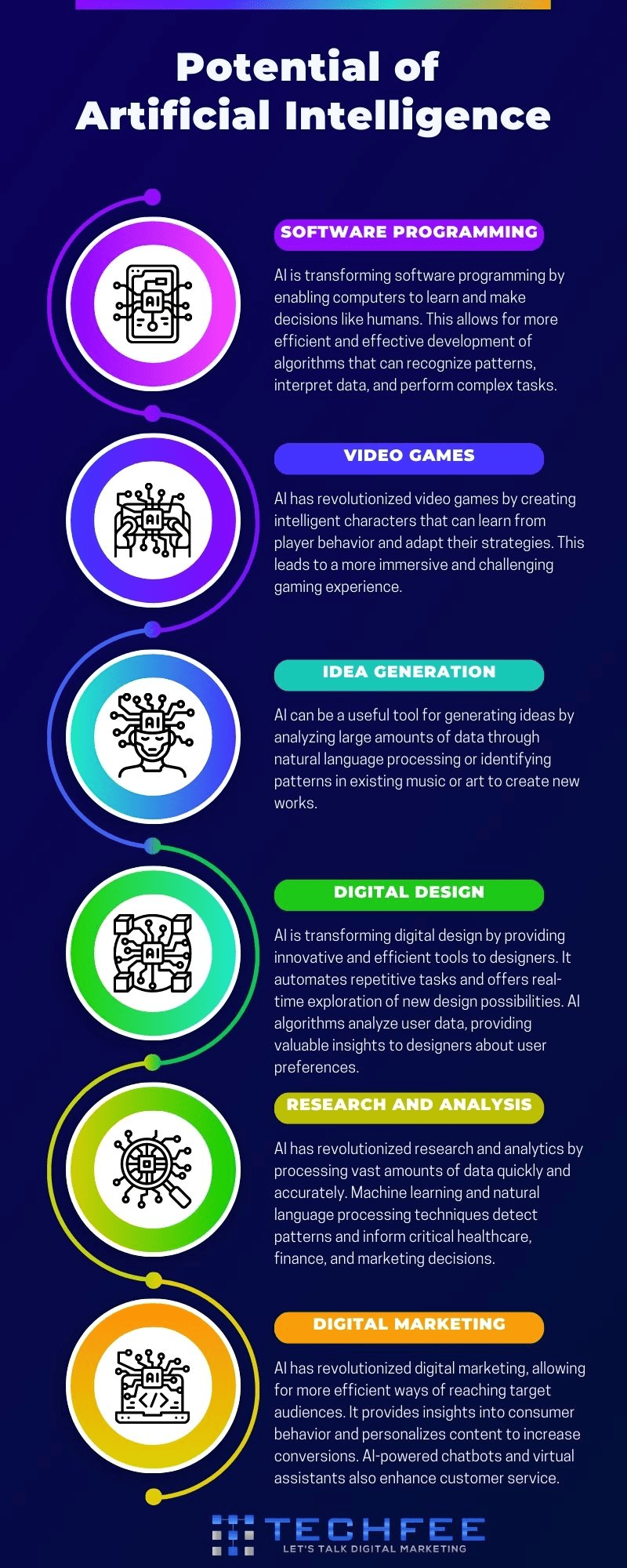
What Are Artificial Intelligence Tools
Artificial Intelligence (AI) tools are computer programs or software that imitate human intelligence to perform tasks that usually require human cognition.
These tasks include learning, reasoning, problem-solving, perception, and decision-making. Top artificial intelligence tools can analyze large data sets, recognize patterns, and provide insights that can automate or enhance various industries and processes.
AI tools function differently, depending on their type and intended use. Some of the most common types of used AI tools include:
Machine Learning: Machine learning algorithms enable computers to learn and improve from experience without being explicitly programmed.
They use statistical techniques to identify patterns in data and make predictions based on those patterns. Machine learning tools can be used for image recognition, natural language processing, fraud detection, and other applications.
Natural Language Processing (NLP): NLP tools help computers understand and interpret human language. They can analyze and extract information from text, speech, and other unstructured data. NLP tools can be used for chatbots, sentiment analysis, language translation, and other applications.
Robotics: Robotics combines AI with mechanical engineering to create intelligent machines to perform physical tasks. Robots can be programmed to complete repetitive tasks in manufacturing, perform surgeries, and even explore other planets.
Expert Systems: Expert systems are AI tools that use knowledge and reasoning to solve complex problems in specific domains. They mimic the decision-making process of a human expert and can be used in areas such as medicine, finance, and law.
AI automation tools use advanced algorithms and data processing techniques to mimic human intelligence and automate or enhance various tasks and industries.
As AI technology evolves, we expect to see more applications and innovations in this field.
Importance of Using AI Tools In 2024
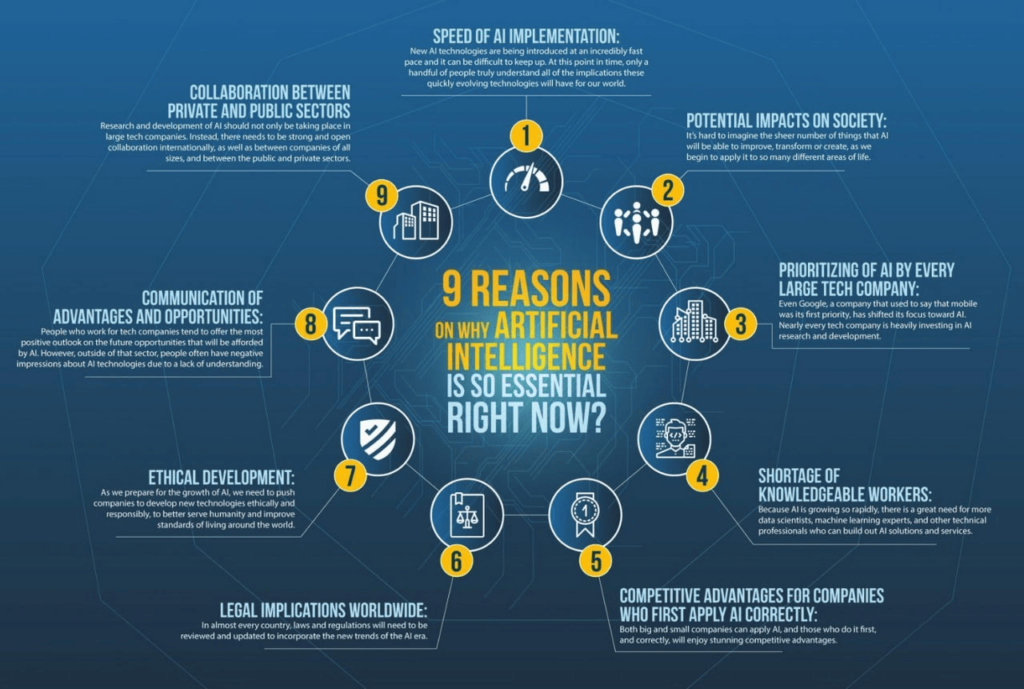
In today’s fast-paced world, using great AI tools holds great significance. With the sheer amount of data produced every moment on the web, it is nearly only possible for humans to analyze and interpret it with the help of the best AI tools.
These artificial intelligence tools facilitate data-driven decisions for businesses and organizations, enhance operational efficiency, and create new products and services.
For example, in health, AI tools help in the accurate diagnosis of diseases and the development of new treatments.
Additionally, AI-powered chatbots are used in education to improve student learning and retention. Therefore, it is obvious that using AI-based tools is crucial for success in today’s world, considering the various benefits they provide.
How AI Tools Can Transform Your Business
AI technology can potentially transform businesses in various ways by utilizing the power of artificial intelligence. It enables businesses to obtain comprehensive insights into their operations, customers, and markets.
With AI-based analytics, companies can recognize trends and patterns in customer behavior, leading to informed decision-making based on data. This ultimately results in an enhanced customer experience and satisfaction.
Moreover, AI-driven chatbots can offer personalized and quick responses to customer queries, leading to faster response times and improved customer satisfaction.
AI-powered tools can also help businesses optimize their operations by identifying possible equipment malfunctions beforehand, minimizing downtime and maintenance expenses.
Overall, the best AI tools and techniques can improve efficiency, decrease costs, and drive growth, essential components of a contemporary business strategy.
Choosing the Right AI Tools For Your Business
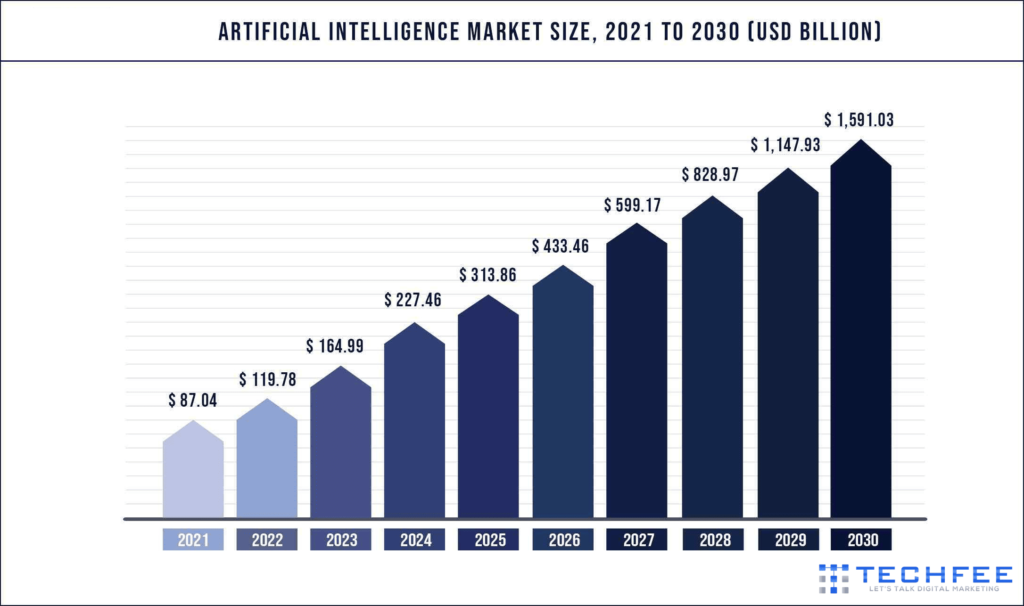
Selecting the right AI tools for small businesses or companies may seem daunting, but getting the most out of the available technology is essential.
The first step is to determine your business goals and needs. This will help you narrow your options and focus on the best artificial intelligence tools that meet your specific requirements instead of randomly choosing all ai tools.
You should also consider factors like cost, ease of use, and compatibility with your current systems. Finally, conducting thorough research and evaluating potential AI tools is crucial to ensure they meet your needs and offer a significant return on investment.
By choosing the right tools of artificial intelligence, as I said above, you can improve your operational efficiency, automate tasks, and gain valuable insights that can help you make well-informed business decisions.
The Best AI Tools and Platforms For 2024
1. LaMDA By Google AI
LaMDA is an innovative language model developed by Google that aims to improve communication between humans and machines by enabling more natural and interactive conversations.
Unlike conventional chatbots, LaMDA can understand the context of a conversation and provide responses that sound more like human dialogue.
It leverages Google’s BERT technology and advancements in natural language processing and machine learning to generate more nuanced and relevant replies.
Google plans to use LaMDA to create a smoother and more seamless interaction between humans and technology, making it easier to complete tasks and access information efficiently.
2. CHATGPT By OpenAI
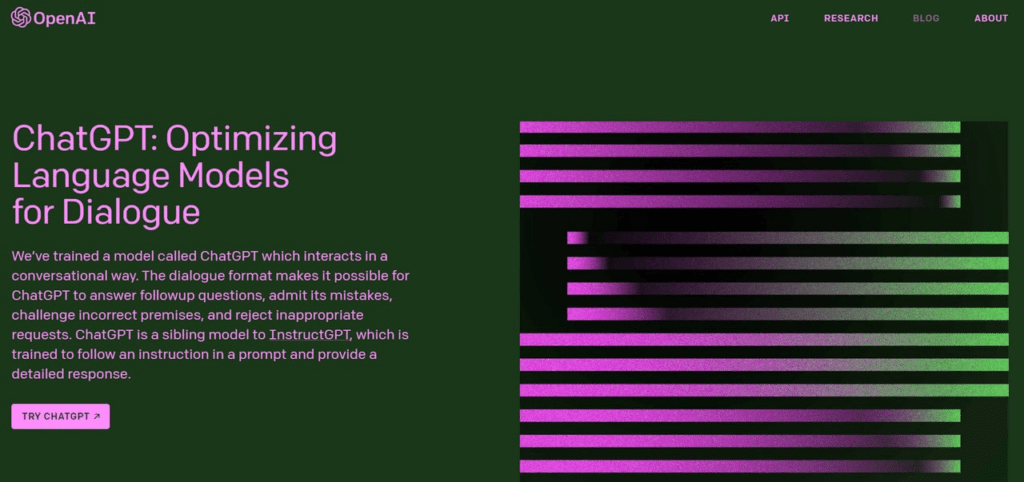
CHATGPT is a language model created by OpenAI that uses the GPT-3.5 architecture to provide human-like responses to prompts. It’s a conversational AI tool and one of the most popular AI tools for content writing.
This technology has become highly useful in various fields, such as machine learning, artificial intelligence, and natural language processing.
Thanks to CHATGPT, it’s possible to have more personalized and advanced interactions with machines, allowing for more natural communication between humans and technology.
This model’s natural language processing abilities are impressive, paving the way for automation, customer service, and research. As a result, CHATGPT has revolutionized how humans interact with technology and is expected to play a significant role in shaping the future of technology.
3. Replika
Replika is an advanced AI tool designed to offer companionship to people seeking it. Developed in collaboration with the GPT-3 language model, Replika uses a unique autoregressive model to generate responses that sound like natural human conversations.
By drawing on past conversations, the tool enables users to have more meaningful and profound discussions.
As you interact more with Replika, the AI chatbot learns more about your needs and preferences. As a result, it can quickly respond to your messages and become a reliable friend.
Replika has many free features for users to try, and paid features are available. Therefore, consider this one of the alternative tools of CHATGPT.
4. Chatsonic
This innovative conversational AI tool is built on top of the GPT3 platform. Thanks to its integration with Google’s information network, it uses natural language processing and machine learning to deliver accurate information about recent events.
ChatSonic has the potential to expand and surpass the limitations of previous input methods, offering the convenience of voice commands rather than manual typing. In addition, once your conversation is complete, you can export it as a Word or PDF document later.
With ChatSonic, you can easily access and utilize the latest information available, making it an excellent tool for anyone needing accurate and reliable data.
5. Chinchilla
Chinchilla is a cutting-edge AI tool rapidly gaining popularity as an alternative to ChatGPT. It has even been praised as a potential replacement for GPT-3 in collaboration with Deepmind.
Like BERT and GPT-3, Chinchilla is focused on transformer models.
However, it outperforms ChatGPT’s mathematical MMLU dataset in terms of performance. This makes Chinchilla an excellent choice for people who need a language model for complex writing tasks, AI-generated art, reasoning, and search engine capabilities.
6. Pictory
Pictory is one of the best AI tools for video editing and creating powered by AI that helps you produce high-quality videos without any prior experience in video editing or design.
It’s a user-friendly platform simplifies video-making for personal bloggers and businesses seeking to enhance their engagement and quality.
To create a video with Pictory, all you need to do is provide a script or an article, and the tool transforms it into a captivating video that can be shared on social media or your website. Because Pictory is cloud-based, you can use it on any computer, making it accessible and convenient.
7. Lumen5
Lumen5 is a user-friendly online free AI tool that lets you create videos. You can take advantage of various tools that make video-making a breeze. In addition, the platform offers various templates and formats optimized for different social media platforms.
With the help of an AI tool, Lumen5 can generate a video sequence using images that match the transcript you upload. Additionally, the platform has a variety of images and video clips that you can use to enhance your final video.
8. Jasper
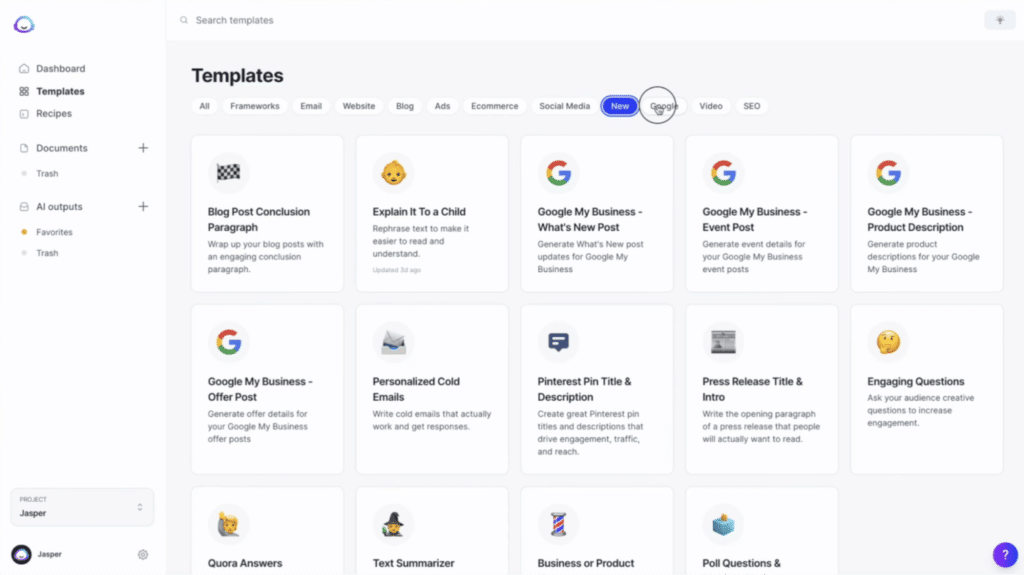
Jasper is the most popular artificial intelligence widely considered the best AI tool for writing assistants due to its exceptional features and quality.
To use Jasper, all you need to do is provide it with a set of seed words that it will analyze to generate phrases, paragraphs, or even entire documents based on your subject matter and desired tone.
One of Jasper’s most impressive capabilities is its speed. It can produce a high-quality article of up to 1,500 words in less than 15 minutes.
In addition to its speed, Jasper offers more than 50 AI content generation templates, including blog posts, emails, marketing copy, Facebook ad generator, Google ad generator, meta titles and descriptions, press releases, and many others.
With such a diverse range of templates available, Jasper is a highly versatile tool that can be used for various writing needs.
9. Copy.Ai
Copy.ai is a copywriting tool that leverages artificial intelligence (AI) to aid individuals and businesses in generating high-quality written content with ease and speed.
The tool uses advanced natural language processing (NLP) technology to create various types of content, including product descriptions, blog posts, ad copy, and more. By automating the writing process, copy.ai saves users time and increases their productivity.
Additionally, the tool provides various customization options that allow users to tailor their content to their specific preferences and requirements.
Overall, copy.ai is a practical and efficient solution for anyone seeking a powerful and user-friendly approach to producing compelling written content.
10. Notion.Ai
Notion.ai helps you generate high-quality original content without plagiarism. In addition, it offers various features that can aid your writing process, such as brainstorming, editing, and summarizing your work.
To use this tool, you only need to indicate the type of content you wish to create, like a blog post, social media post, press release, or job description.
Additionally, it can assist you in creating outlines and poems on any topic.
Notion.ai is an excellent resource for writers looking to improve the quality and uniqueness of their content.
11. Surfer
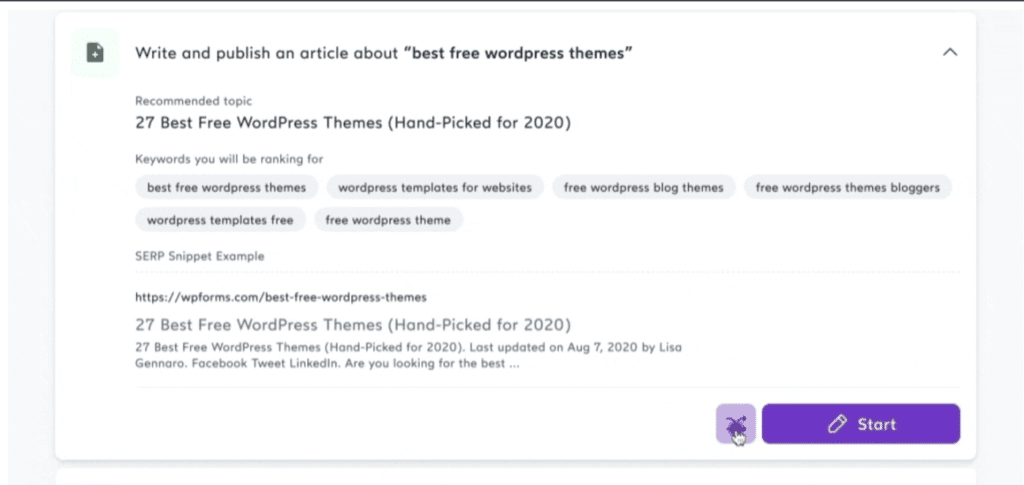
Surfer is a tool that uses artificial intelligence to help create and maintain website content. They have a dashboard named “Grow Flow,” a checklist for gradually improving website content.
This dashboard highlights opportunities for internal linking and missing keywords and generates weekly content ideas and outlines to help you write more effectively.
By following the recommendations provided by Grow Flow, your website content will become more relevant and valuable to search engines.
12. Murf
Murf text-to-speech generator is one of our recommended Best AI tools for businesses. This advanced AI voice generator is highly sought-after by professionals such as podcasters, educators, product developers, and business leaders who need to convert text to speech, voiceovers, and dictations.
Murf offers a wide range of customization options to create natural-sounding voices. Its user-friendly interface has various voices and dialects, enabling customization preferences such as speaker, accents/voice styles, and tone or purpose.
Murf’s AI voiceover studio comes with a built-in video editor to create a video with voiceover. In addition, it offers over 100 AI voices from 15 different languages, allowing users to select the best match for their requirements.
Another excellent feature of Murf is its voice changer, which enables users to record a voiceover without using it. Furthermore, Murf’s voiceovers can be personalized by adjusting pitch, speed, and volume, adding pauses and emphasis, or modifying pronunciation to suit your needs.
Overall, Murf is an impressive AI tool that can provide high-quality voiceovers with various customization options, making it an ideal choice for businesses.
13. Hitpaw Photo Enhancer
Hitpaw is also one of the best AI tools for image enhancers in my AI tool list. It is a reliable image enhancer that effectively removes blurriness and enlarges images without compromising quality.
This AI tool for photo editing is suitable for professional-level photo editing and has powerful models that can improve the quality of photos in any situation.
Additionally, the platform offers an exciting technology that can colorize black-and-white photos and revive old images with just one click. Using its powerful AI noise reduction technology, the denoise model is an excellent feature that can remove noise from high-ISO and low-light photos. It can also make cartoon images appear more transparent.
HitPaw is a versatile and user-friendly platform offering various powerful AI tools for image editing and enhancement.
14. Tidio
Tidio is one of the ai tools for customer service that provides a straightforward answer for enterprises to incorporate a chatbot into their webpage. As a result, you can converse with customers and attend to their concerns in real-time immediately.
Furthermore, it simplifies the process of providing incentives, such as personalized discounts based on their browsing history.
Additionally, the AI can suggest product recommendations based on their behavior. Tidio’s live chat is compatible with several CRM, eCommerce, and email marketing platforms.
Integrating the widget and tools with Shopify, Messenger, WordPress, and other platforms is simple.
15. Speechify
Speechify is an online platform that enables users to convert written text from different formats into natural-sounding speech. Users can listen to audio versions of their PDFs, emails, documents, and articles instead of reading them.
The platform boasts a variety of more than 30 voices to choose from, and the reading speed can be adjusted according to the user’s preferences.
What’s more, Speechify’s advanced technology can identify over 15 languages, and it can even convert printed text that has been scanned into an easy-to-understand audio format.
16. Reply.Io
The reply is a platform that provides a complete solution for sales engagement activities. With its help, you can create multiple opportunities on a large scale while maintaining a personalized approach for each touchpoint.
Meanwhile, another platform available is “Jason AI,” powered by ChatGPT, which acts as a personal assistant to help you with your outreach sequences, prospect responses, and meeting bookings.
Moreover, the platform includes filters that help you target potential customers most likely to purchase your product or services. Jason AI generates sequences starting with the initial email, follow-ups, and social media interactions and even suggests other communication channels to approach prospects on your behalf.
17. Neuraltext
Neuraltext is a platform powered by AI that offers a comprehensive suite of tools for creating content, covering everything from brainstorming ideas to execution.
The platform provides three main tools to its users: an AI copywriter, an SEO content tool, and a keyword research tool.
The AI copywriting tool is designed to help users generate compelling content for their campaigns. It offers dozens of copy variations using over 50 pre-made templates, such as Facebook ads, slogan ideas, and blog section writing. This helps users save time and effort while still creating impactful content.
The SEO content tool helps users create well-researched content by analyzing data from top-ranking Google pages. All the user needs to do is input a keyword, and the tool will pull up the top 20 results, providing insights on suggested keywords, topics to cover, questions to answer, and statistics. This information can be used to quickly create content outlines and briefs, helping users save time.
Moreover, the integrated editor provides a score based on data pulled from the SEO content tool, enabling users to optimize their content for SEO in real time.
Lastly, the keyword research tool helps users find long-tail keywords with strong commercial intent, allowing them to target audiences ready to convert.
18. Anyword
Anyword helps marketers create compelling content for platforms like Facebook, Google Adwords, LinkedIn, and Twitter. It simplifies crafting ads and generating longer-form content such as blog posts, product descriptions, and YouTube descriptions.
What makes Anyword unique is its ability to provide predictive metrics and insights that enable marketers to add a data-driven approach to their creativity. It identifies which elements of their message work best for their target audience, allowing marketers to optimize their content for maximum impact.
With Anyword, marketers can save time and effort to create compelling content that resonates with their audience. By using data to guide their creative decisions, they can achieve better results and drive more engagement from their audience.
19. DALL•E 2
A fascinating new AI program created by OpenAI is revolutionizing generative art. Essentially, it generates incredibly detailed and realistic images from text-based descriptions.
This opens up a new world of possibilities for artists, designers, and other creative professionals. DALL-E 2 uses a highly advanced neural network architecture to create stunning images of various subjects, including exotic animals, surreal landscapes, intricate machinery, and abstract patterns.
Its ability to understand and interpret language in a sophisticated way makes it a game-changing tool for anyone looking to push the boundaries of visual creativity.
20. TIMEHERO
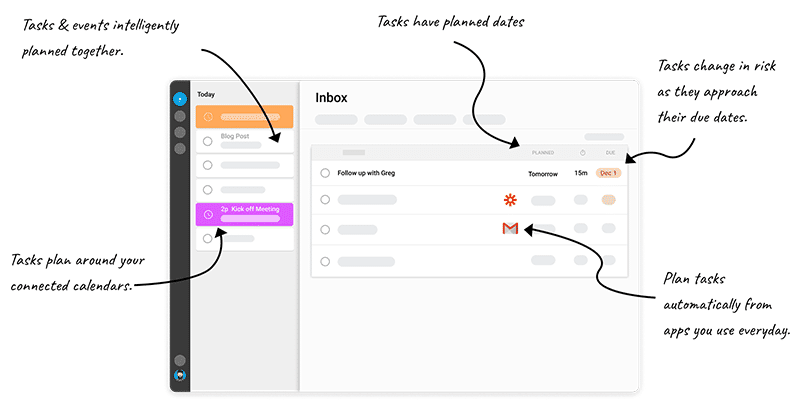
TimeHero is a time management platform that uses artificial intelligence to help users manage their project calendars, schedules, and to-do lists.
With TimeHero’s machine learning technology, the platform can remind employees of upcoming meetings, emails, and project deadlines.
By syncing personal calendars with their team’s calendars, TimeHero users can work more efficiently on projects and adjust their schedules to accommodate each other’s deadlines.
This collaboration feature can enhance teamwork and improve project management. Overall, TimeHero can help individuals and teams stay on top of their tasks and accomplish their goals more effectively.
Top Artificial Intelligence Software Tools
Artificial intelligence software tools have become increasingly popular in recent years because they can automate complex tasks and provide insights into vast amounts of data.
21. Google Cloud Learning Machine
A powerful cloud-based platform allows developers to quickly build and train machine learning models.
It offers a range of advanced tools and services, including data labeling and preprocessing, model selection and tuning, and automated training and deployment.
22. Visily.AI
An AI-powered platform that leverages computer vision technology to automate tasks and improve business processes. It can analyze images and videos to extract insights and provide accurate predictions, making it ideal for use in retail, healthcare, and manufacturing industries.
23. Salesforce Einstein
A suite of AI-powered tools that streamline sales, marketing, and customer service operations. It uses machine learning and natural language processing to automate tasks, provide personalized recommendations, and enhance customer engagement.
24. IBM Watson
A cutting-edge AI platform that provides developers and businesses access to various advanced tools and services. It includes natural language processing, machine learning, and computer vision capabilities and can be used to build custom AI solutions for multiple industries.
25. Youper
An innovative AI assistant designed to provide personalized mental health support. It uses natural language processing to understand and analyze users’ thoughts and feelings and provides them with insights, exercises, and other resources to improve their mental well-being.
26. Cortana
A popular voice-enabled AI assistant developed by Microsoft. It can perform searches, set reminders, and automate tasks using natural language commands, making it a valuable tool for increasing productivity and efficiency.
27. Oracle AI
An advanced suite of AI tools and services designed to help businesses build and deploy custom AI solutions. It offers machine learning, natural language processing, computer vision capabilities, and pre-built AI applications for various industries.
28. Infosys Nia
A comprehensive AI platform that combines machine learning, natural language processing, and computer vision technologies. It helps businesses optimize their operations, automate tasks, and gain valuable insights from their data.
29. Symantec
An AI-powered cybersecurity platform that uses machine learning to detect and prevent cyber threats. It can analyze large amounts of data and identify patterns and anomalies that indicate potential security breaches, helping to keep businesses and individuals safe online.
30. OUTMATCH
A robust talent management platform that uses AI and machine learning to help businesses find and hire top candidates. It can analyze resumes and job applications, evaluate skills and qualifications, and provide valuable insights and recommendations to recruiters and hiring managers.
31. Periscope Data
A robust data analytics platform that uses machine learning to help businesses gain insights from their data. It includes advanced features like predictive analytics, anomaly detection, and data visualization tools.
32. Wipro Holmes
A comprehensive AI platform that offers machine learning, natural language processing, and computer vision capabilities. It can automate and optimize various business processes, including customer service, supply chain management, and finance.
33. Rainbird
An innovative AI platform that uses natural language processing to enable businesses to automate complex decision-making processes. It can analyze large amounts of data and provide:
- Accurate recommendations and predictions.
- Making it ideal for use in finance.
- Healthcare.
- Legal services.
34. Tableau
A user-friendly data visualization platform that uses machine learning to help businesses gain insights from their data. It includes powerful features such as data blending, mapping, and forecasting and can be used to create stunning visualizations and dashboards.
35. Receptivity
An advanced natural language processing platform that helps businesses analyze and understand human language. It can detect emotions, sentiments, and personality traits, providing valuable insights into customers, employees, and other stakeholders.
36. Scikit Learn
A popular machine learning library for Python that allows developers to build and train machine learning models with ease. It offers a range of tools and algorithms for tasks such as classification, regression, clustering, and dimensionality reduction.
37. TensorFlow
A powerful open-source library developed by Google for building and training machine learning models. It includes a range of high-level APIs for tasks such as image and text recognition and low-level APIs for custom model development.
38. Theano
An open-source numerical computation library that allows developers to build and optimize machine learning models. It includes automatic differentiation, GPU acceleration, and symbolic expressions.
39. Caffe
A deep learning framework developed by Berkeley AI Research for image classification and other computer vision tasks. It includes a range of pre-trained models and can be used to train custom models on large datasets.
40. MxNet
An open-source deep learning framework that offers high performance and scalability. It includes various tools for tasks such as image and text recognition and can be used to train and deploy models on various platforms.
41. Keras
A user-friendly deep learning library that allows developers to build and train models with ease. It includes a range of high-level APIs for tasks such as image and text recognition and can be used with TensorFlow or other backends.
42. PyTorch
A popular deep learning library that offers a dynamic computational graph and easy-to-use APIs. It can build and train various models, from simple feedforward networks to complex recurrent neural networks.
43. CNTK
A deep learning framework developed by Microsoft that offers high performance and scalability. It includes various tools for tasks such as image and speech recognition and can be used to train and deploy models on various platforms.
44. AutoML
A set of tools and techniques that allow developers to automate the process of building and training machine learning models. It includes a range of algorithms for tasks such as hyperparameter tuning and model selection and can be used to accelerate the development of AI applications.
45. OpenNN
An open-source neural network library that allows developers to build and train models with ease. It includes various tools for tasks such as regression, classification, and clustering and can be used with various programming languages.
46. H2O
An open-source platform for building and deploying machine learning models. It includes a range of algorithms and tools for tasks such as data visualization, feature engineering, and model interpretation and can be used with various programming languages.
47. Google ML Kit
A set of machine learning tools and APIs designed for mobile app development. It includes features such as image labeling, text recognition, and face detection and can be used to build powerful AI-enabled apps.
48. TELLIUS
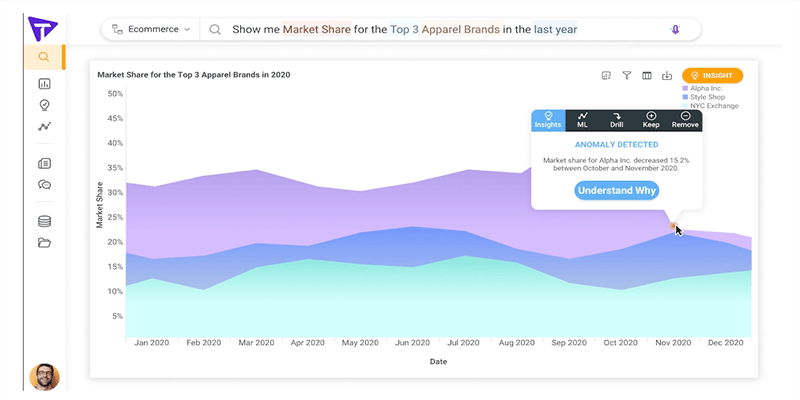
A powerful AI platform that allows businesses to gain insights from their data. It includes a range of features such as natural language search, data visualization, and predictive analytics and can be used to automate tasks and streamline operations.
49. Gong.io
A sales enablement platform that uses AI to analyze sales calls and provide valuable insights to sales teams. It includes features such as conversation analytics, call transcription, and performance coaching and can be used to improve sales effectiveness and close more deals.
Challenges And Risks Of Using AI
Artificial Intelligence (AI) is now extensively used in various domains of society, ranging from healthcare and finance to transportation and entertainment. However, despite its advantages, AI also poses several challenges and risks that come with its application.
One primary obstacle to using AI is the need for more transparency in its decision-making processes. In addition, the complexity of AI algorithms makes it difficult to comprehend how they arrive at their conclusions, resulting in distrust in their recommendations or predictions.
Another challenge is the possibility of AI systems reinforcing biases and discrimination. For example, if the data sets used to train AI algorithms are biased or incomplete, the outcomes produced may perpetuate existing inequalities and prejudices.
Significant risks are also associated with using AI, particularly in privacy and security. For example, AI systems collect and analyze vast amounts of data, creating a chance that this information could be exploited for malicious purposes, such as identity theft or cyber-attacks.
Lastly, AI could displace human workers in particular industries, leading to extensive unemployment and economic disruption. While AI can potentially increase efficiency and productivity, it is crucial to ensure that it is implemented to support workers and promote economic growth.
To mitigate these challenges and risks, it is essential to consider AI’s potential impacts and implement safeguards and regulations that protect against its adverse effects.
Conclusion
To sum up, using AI tools in 2024 is causing a significant change in how businesses function. These tools are capable of performing tasks on their own and predicting customer behavior, and they have the potential to revolutionize companies of all sizes and industries.
Businesses can simplify operations, boost efficiency, and ultimately achieve growth by using these best AI tools.
Therefore, companies must keep informed about the latest AI advancements and integrate them into their operations to keep up with the rapidly evolving business world.
I have mentioned the world’s best all AI tools in one website. Now choose which one suits your business needs and leverage the potential of artificial intelligence.
By implementing the right AI tools, businesses can unlock endless possibilities and reach new levels of success. Finally, please write in the comment section if you still have any queries or doubts regarding any information I shared in this article. I would love to read that.
Frequently Asked Questions
Which country is the best in terms of AI technology?
According to a recent report by Oxford Insights and the International Development Research Centre, the top countries leading the AI revolution are the United States, China, the United Kingdom, Canada, and India. In addition, these countries have the highest number of AI startups, research institutions, and investments in AI technology.
How Is AI Used Today?
AI is used in various industries and applications, including healthcare, finance, and marketing. Some of the top AI tools today include:
- Customer service chatbots.
- Predictive analytics for business forecasting.
- Natural language processing for language translation and sentiment analysis.
What are the well-known AI tools?
Some of the most well-known AI tools include TensorFlow, PyTorch, Keras, Scikit-learn, and IBM Watson. These tools are used for various applications, from natural language processing to image recognition and machine learning.
Which software is best for making AI?
Many great AI tools are available for developers and businesses, each with strengths and weaknesses. Top options include TensorFlow, Keras, PyTorch, IBM Watson, and Microsoft Azure AI. But, of course, the best tool for you will depend on your specific needs and goals.
What is the fastest-growing AI app?
According to recent reports, the fastest-growing AI app is a virtual assistant, Xiaoice, developed by Microsoft. Xiaoice has over 660 million users in China and is expanding to other countries, offering personalized conversations and emotional connections through natural language processing and machine learning.
How does artificial intelligence affect human life?
Artificial intelligence has the potential to significantly impact human life in various ways, from improving healthcare and transportation to changing how we work and communicate. However, there are also concerns about the ethical implications of AI and its potential to replace human jobs. Therefore, it is essential to carefully consider the benefits and drawbacks of AI as it continues to develop and become more integrated into our daily lives.
Will AI take over humans one day?
While AI technology is advancing rapidly, it will only partially take over humans. AI tools can be handy for businesses, from automating repetitive tasks to analyzing data and making predictions. However, they still require human input and oversight to function effectively.
What are the advantages of artificial intelligence?
Some advantages of artificial intelligence include increased efficiency and productivity, improved decision-making, better customer service, and the ability to analyze large amounts of data quickly and accurately. AI can also automate repetitive tasks, allowing humans to focus on more complex and creative work.
What are 3 negative effects of artificial intelligence?
While AI has many benefits, there are also some adverse effects. Three of these include job displacement, bias and discrimination in decision-making, and the potential for AI to be used for malicious purposes. Therefore, it's essential to consider these potential downsides as we continue to develop and implement AI technology.
What is the most significant danger of artificial intelligence?
One of the most significant dangers of artificial intelligence is its potential to become too powerful and uncontrollable. As AI systems become more advanced and autonomous, there is a risk that they could make decisions or take harmful actions toward humans or society. Additionally, there is a concern that AI could be used for malicious purposes, such as cyber-attacks or surveillance.
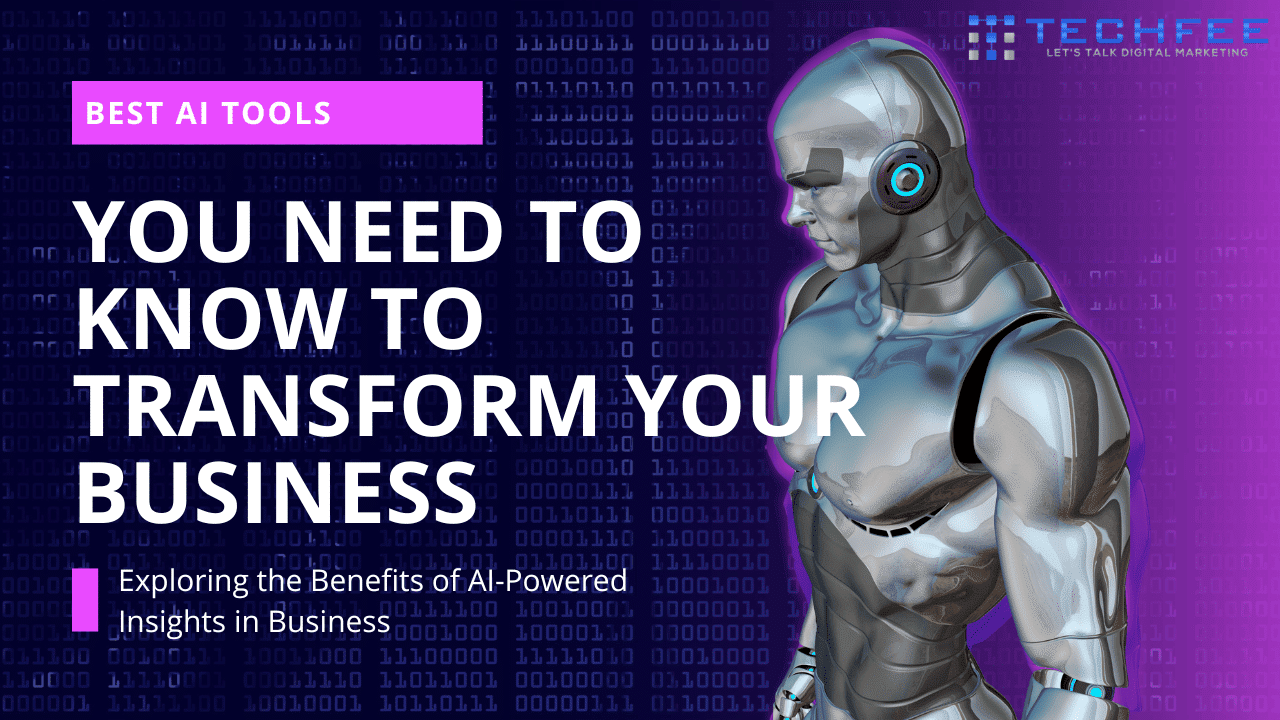


 Twitter
Twitter Facebook
Facebook Linkedin
Linkedin



